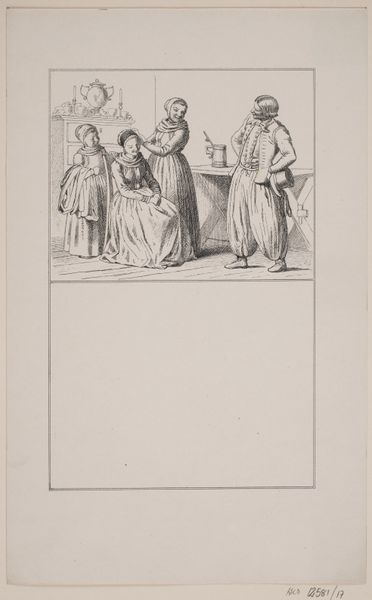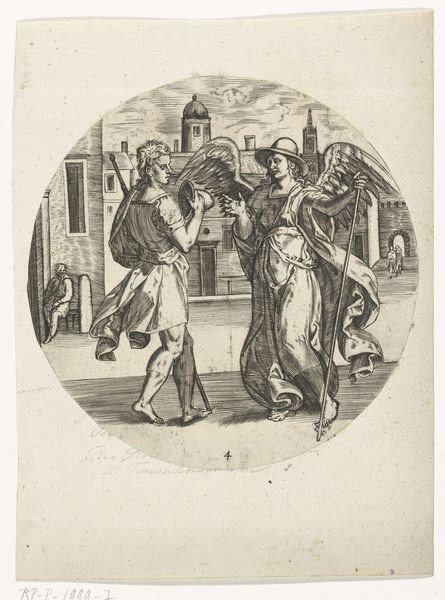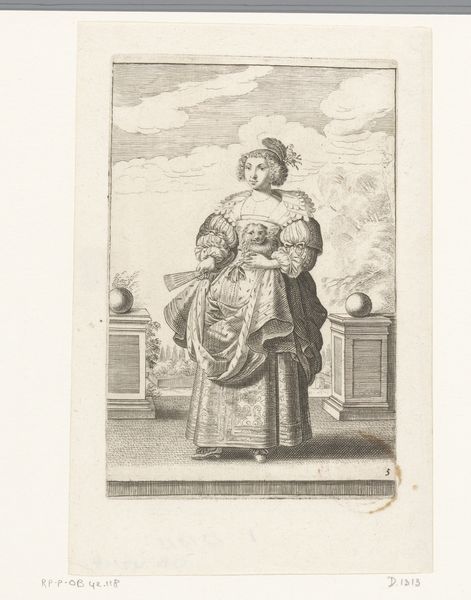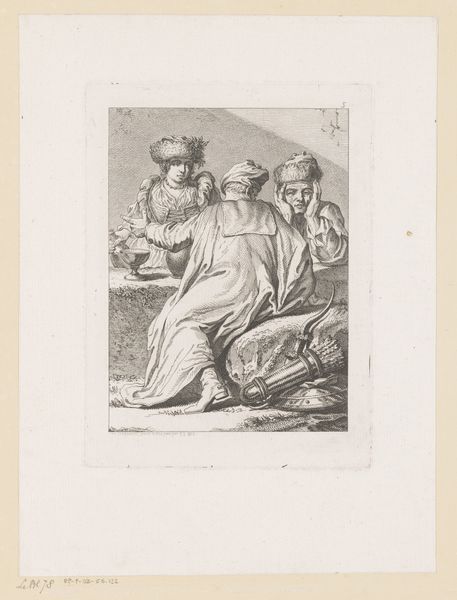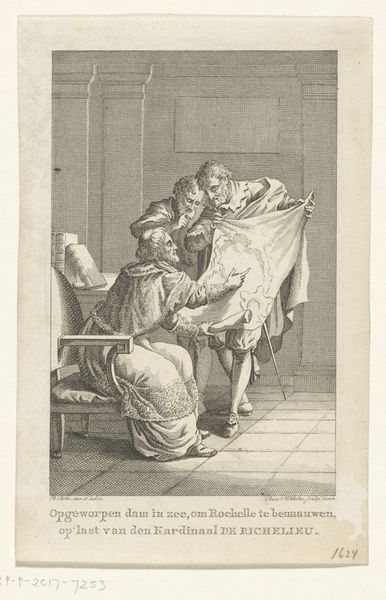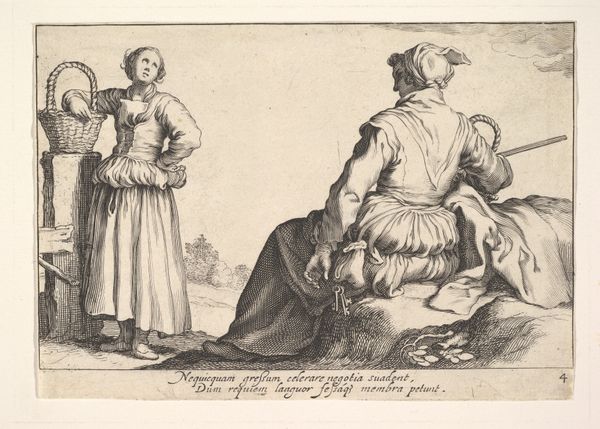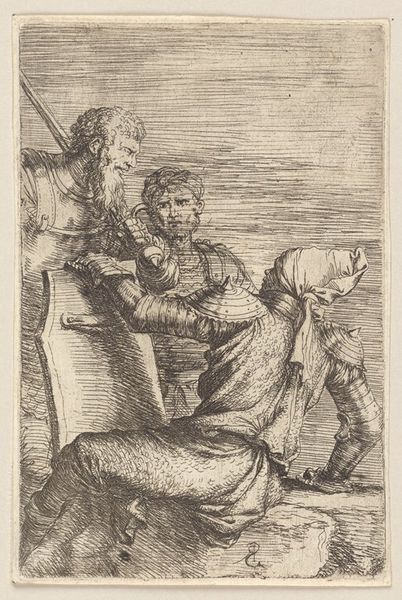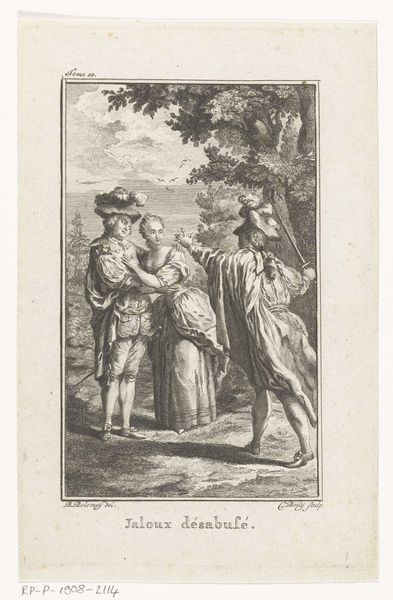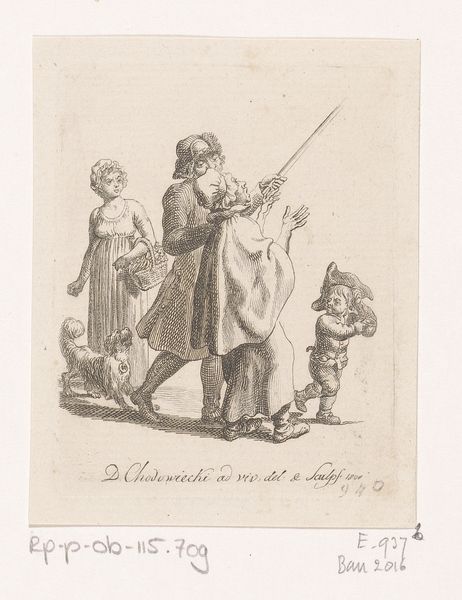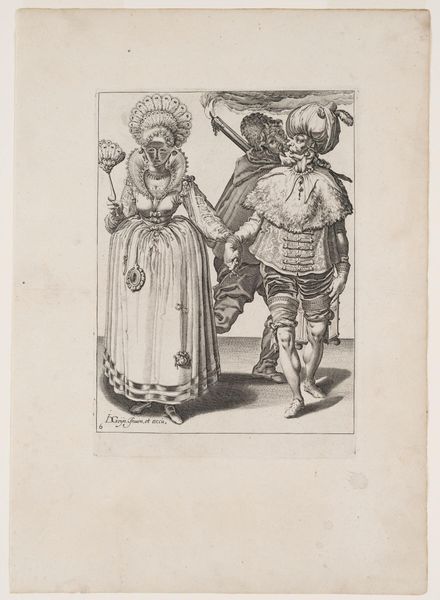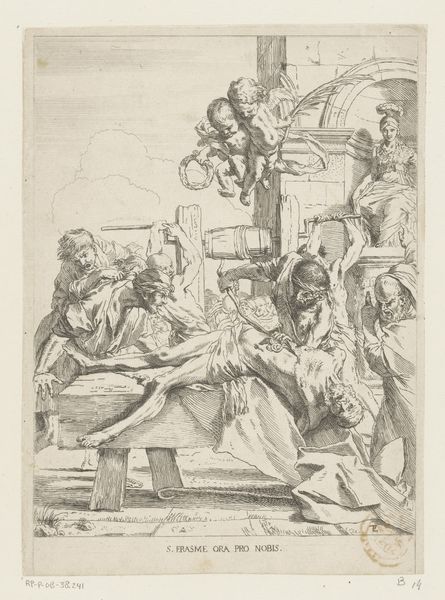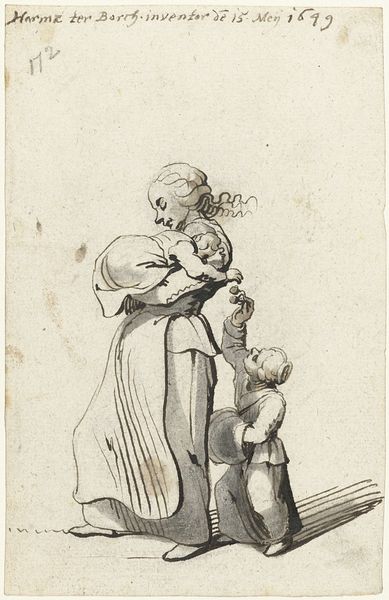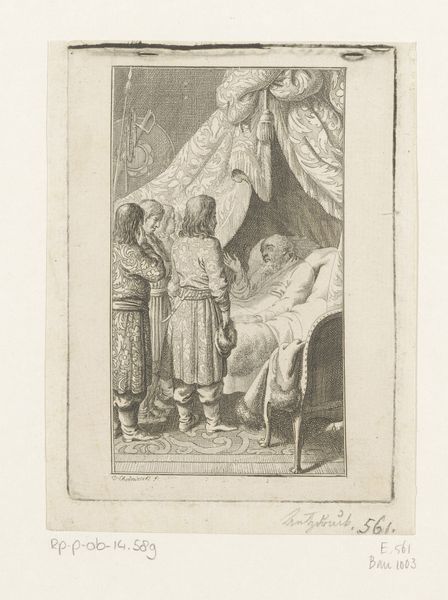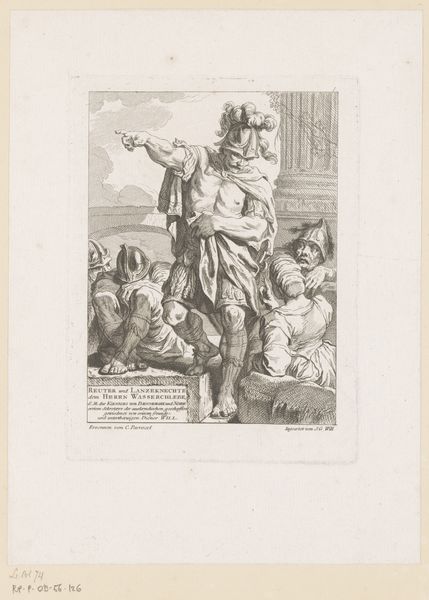
Gallerie des Modes et Costumes Français, 1780, ee 169 (bis) : Femme vêtue d'un Levit (...) 1780
0:00
0:00
print, engraving
#
portrait
# print
#
old engraving style
#
genre-painting
#
dress
#
engraving
Dimensions: height 282 mm, width 196 mm
Copyright: Rijks Museum: Open Domain
This fashion plate was made in 1780 by J. Pelicier, using engraving on laid paper. The figure depicted is a woman wearing a "Levite," an informal style of dress named for the Levant region, a major center of textile production. Look closely at the lines that describe the dress's details; the gauzy pleated band at the hem, the ribbon sash with tassels, and the dense, rather disheveled, plumage atop her head. These elements are a catalogue of different materials, each with their own geography of extraction and manufacture. The rendering of these materials is equally evocative. The artist, Pelicier, emphasizes the textures of the fabrics, their drape and weight, conjuring the tactile qualities of these textiles. This print underscores the sheer amount of labor – both enslaved and free – that went into the production of fashionable dress. Consider the social significance embedded in the woman's adornment. It is a visible sign of her privileged status.
Comments
No comments
Be the first to comment and join the conversation on the ultimate creative platform.
